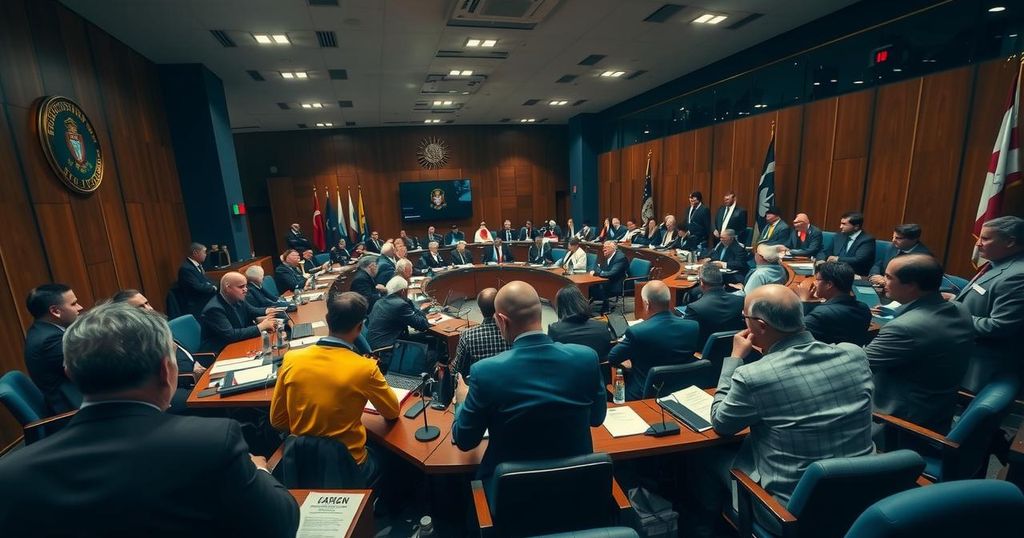COP29: Key Outcomes and Implications for Climate Action Ahead of COP30

COP29 displayed a mixture of minor successes and significant disappointments as it failed to achieve its central objectives regarding global emissions reduction and climate finance. Developing nations voiced strong criticisms, particularly concerning the $300 billion climate finance commitment, deemed insufficient. Meanwhile, essential issues, including stronger fossil fuel phase-out language, were deferred. Some progress was recognized in financing initiatives within carbon markets and energy storage, but challenges ahead signal a tough road to COP30, demanding more ambitious commitments.
Despite the mixed outcomes at COP29, the conference failed to advance the critical goal of reducing global greenhouse gas emissions and encouraging comprehensive national plans for emission reductions. While a commitment of $300 billion in climate finance per year by 2035 for developing countries was announced, it was criticized as insufficient by representatives from the Global South. Additionally, the opposition to the EU’s proposed carbon border adjustment mechanism (CBAM) from these nations reflects their growing mistrust in the process. This sentiment has ramifications for national climate pledges, evidenced by indications from India that its next climate commitment will be less ambitious than anticipated due to these constraints.
During discussions, Indian delegate Chandni Raina expressed concerns, stating, “The [finance] goal is too little, too distant — it’s for 2035.” She emphasized the challenges facing developing nations as they try to adopt low-carbon pathways without hindering their economic growth. The apprehensions voiced at COP29 suggest that the groundwork for COP30 in Brazil is uncertain, with countries needing to submit their revised emissions commitments soon.
Additionally, COP29 was criticized for not establishing stronger measures regarding fossil fuel phase-out, largely due to resistance from oil-producing nations, notably Saudi Arabia. Although calls for robust anti-fossil fuel commitments were made by several countries, including the UK and vulnerable nations, ultimately, the final agreement did not meet their expectations. Instead, it merely referenced past discussions, leading to deferral of decisions on critical issues until COP30. Mike Hemsley, deputy director of the Energy Transitions Commission, remarked, “It’s hard to put a positive spin on COP29,” acknowledging that the financial outcomes were minimal at best.
Nevertheless, some initiatives at COP29 showcased tangible progress. Guidelines for implementing Article 6 of the Paris Agreement, which facilitates international carbon trading, were advocated fiercely by carbon market proponents. Moreover, the launch of the Global Energy Storage and Grids Pledge aims to significantly enhance energy storage capacities and grid infrastructure by 2030. Nuclear energy advocates also noted advancements towards a pledge to triple nuclear capacity by 2050, gaining the support of 26 signatory nations.
While the ebbs and flows of the COP process may yield variable results, some experts argue that the very existence of the platform creates crucial avenues for dialogue between nations. Brian Hill, former CEO of COP26, noted, “The parties, whatever their disagreements, think the process is valuable enough to keep it on the road.” The ongoing discussions about climate change reiterate the necessity of maintaining multilateral conversations, especially amid increasing global complexities. Christina Verchere, CEO of OMV Petrom, asserted, “If we do not have a mechanism to have this conversation about climate change, I think there will be a massive gap.”
The Conference of the Parties (COP) serves as the primary platform for global climate negotiations under the United Nations Framework Convention on Climate Change (UNFCCC). Each year, countries gather to assess progress towards achieving international climate goals and to negotiate frameworks and commitments for reducing greenhouse gas emissions. COP29, held in Azerbaijan, marked yet another opportunity for nations to unite and tackle climate change, but the outcomes raised concerns, particularly among developing nations that feel pressured to adopt low-carbon strategies despite limited support. As nations gear up for COP30, the focus will remain on enhancing climate action and financial commitments, especially for vulnerable states.
In summary, COP29 revealed significant disappointments regarding the fulfillment of its core objectives related to emission reductions and climate finance. While certain initiatives demonstrated progress, such as advancements in carbon trading and energy storage, the overall response from developing economies indicated a lack of confidence in the commitments made. The delayed decisions on crucial issues, such as fossil fuel phase-outs and inadequate financial pledges, may undermine the efficacy of COP30 unless substantive actions are undertaken soon. Moving forward, the necessity for collaborative talks on climate change remains paramount to prevent further division among global stakeholders.
Original Source: www.energyintel.com






